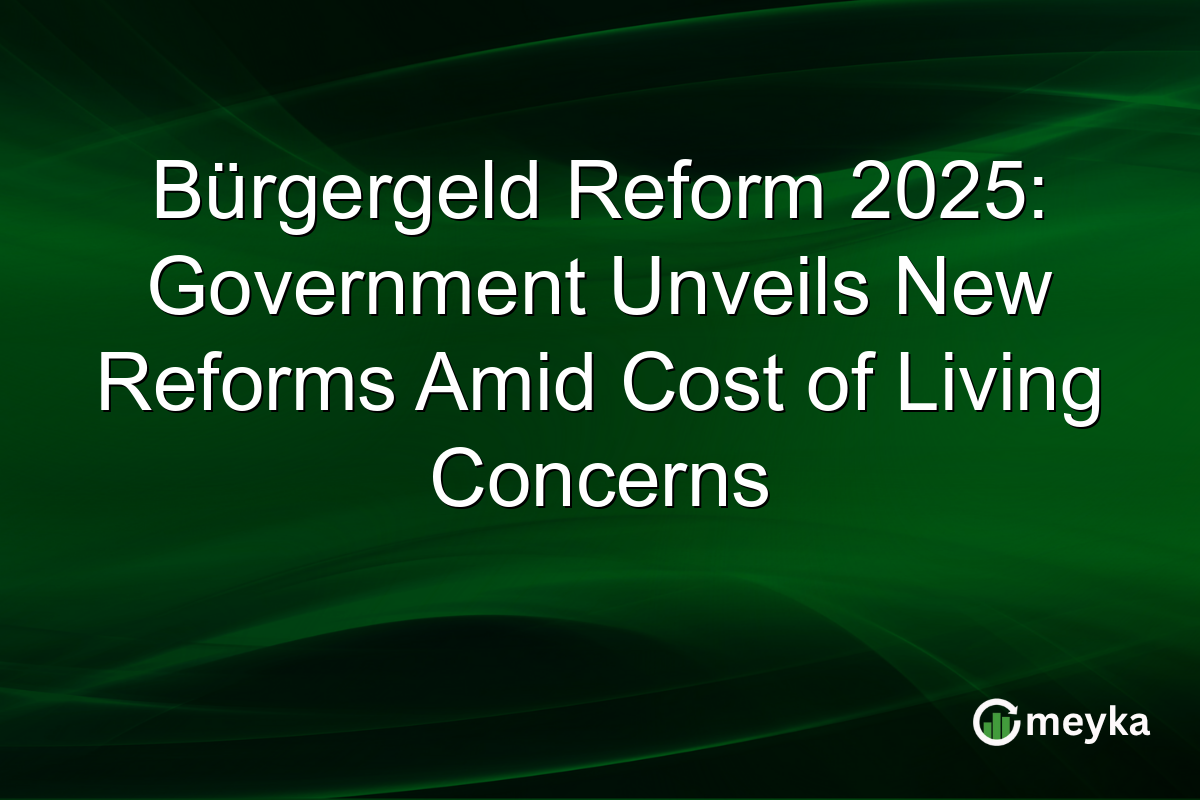Bürgergeld Reform 2025: Government Unveils New Reforms Amid Cost of Living Concerns
Today, the German government introduced pivotal reforms to the Bürgergeld system, aiming to tackle escalating living costs. This 2025 reform seeks to enhance basic income support, marking a significant shift in Germany’s social welfare policy. Economists and policymakers are examining the fiscal implications and potential effects on the labor market. This comprehensive update is crucial given the current economic climate.
Overview of the Bürgergeld Reform 2025
The 2025 Bürgergeld reform aims to significantly improve Germany’s welfare system. Announced by the government, the changes are designed to adjust social benefits to better align with today’s economic realities. The reform introduces increased support, a notable focus on inflation adjustments, and revises eligibility criteria, addressing critiques of the previous system. This Germany social benefits change targets those most affected by the rising cost of living, aiming to provide greater financial stability.
Economic Implications and Labor Market Impact
Economists are weighing in on the potential economic impacts of the Bürgergeld reform 2025. By increasing the Grundsicherung, or basic security benefits, the government aims to help citizens cope with inflation. However, there are concerns about the fiscal burden and its effect on job market participation. While some argue it might deter low-wage employment seeking, others suggest it could give workers more leverage to pursue jobs with fairer compensation. This reform is pivotal in the broader context of Germany’s economic strategy. For a deeper understanding of these changes, check this article on Tagesschau.
Policy Debate and Public Reaction
The reform has sparked widespread debate among policymakers. Supporters argue it is a necessary adjustment to provide adequate support amid economic pressures. Critics caution about long-term sustainability and potential inflationary pressures. Public reaction has been mixed, with some citizens welcoming the changes as overdue, while others express concern over possible tax increases to fund the reforms. According to a recent analysis, maintaining these benefits requires strategic governmental budgeting and might influence future fiscal policies.
Global Context and Comparison
In a global context, Germany’s move to reform Bürgergeld is part of a broader trend of countries revisiting welfare systems amid economic shifts. This update parallels efforts in other EU nations addressing similar challenges. The reform’s success could serve as a model for balancing welfare system updates without overly burdening taxpayers. Such systemic reforms highlight the growing need for adaptive policies in the face of global economic uncertainties. More insights are available in this Handelsblatt article.
Final Thoughts
The Bürgergeld reform 2025 represents a significant shift in Germany’s social policy landscape, driven by the need to address rising living costs and economic pressures. While aimed at providing immediate relief to citizens, the reform carries implications for the labor market and national fiscal health. As Germany navigates these changes, the reform’s broader success will depend on effective implementation and careful monitoring of its economic impacts. For other nations, it offers a critical case study in balancing social support with fiscal responsibility.
FAQs
The reform introduces higher basic income support and inflation-adjusted benefits. It also revises eligibility criteria to better support those facing increased living costs.
The reform could lead to increased fiscal expenditure, affecting national budgets. Its effect on labor market dynamics and inflation will require careful monitoring.
Reactions are mixed; some praise the necessary update, while others worry about potential tax increases and inflationary effects. The debate continues among policymakers.
Disclaimer:
This is for information only, not financial advice. Always do your research.






